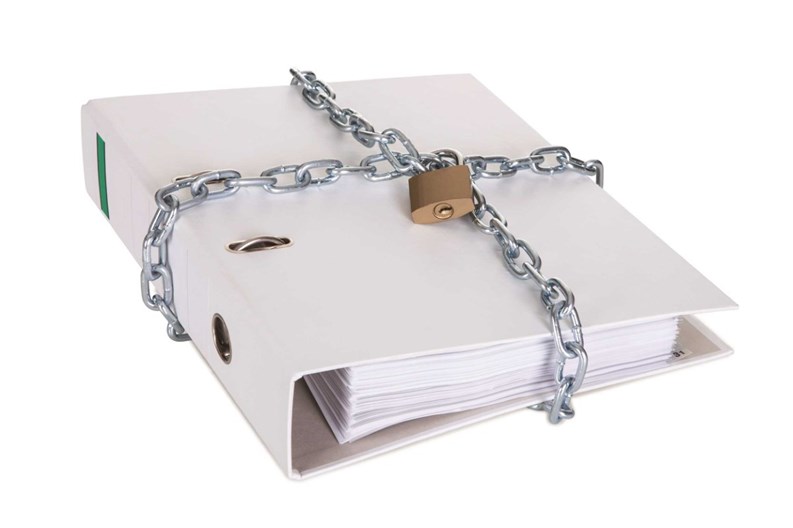Big purchases come with big reams of paperwork...it’s frustrating, but a fact of life. For unit owners, that concept can equate to hundreds of pages of documents outlining everything from the financial status of their residential community to rules regarding sharing common areas.
Occasionally, unit owners and shareholders require access to such documents, or need copies of materials provided at closing. While impossible to share every document involved with the governance of the association, most communities try to make materials as readily accessible as possible.
According to experts, the basic governing document for associations is the bylaws. In addition, the offering plan, amendments to the offering plan, articles of incorporation, community association declaration and the master deed are important documents for building communities as well.
“In a community association, you’ve got a master deed and the bylaws…the main governing documents,” says Scott B. Piekarsky of Wyckoff, New Jersey-based Piekarsky & Associates, LLC, a law firm specializing in community association law. “There’s also typically, at the beginning, a public offering statement which contains additional information that’s given to initial purchasers. You may also find other letters from professionals such as the initial insurance letters from the insurance broker and from the accountant certifying as to what’s in the governing documents.”
A Right to See Docs
“Shareholders or unit owners have the right to a building’s books, records and documents,” says Dan Wurtzel, president of FirstService Residential New York. “The easiest way to make them accessible is to have them on a website.”
Indeed, today’s online technology allows for easy residential access. Those armed with the proper passwords can view secure documents with little effort, while the security software ensures that only the appropriate people are granted that access.
FirstService Residential, for example, offers a website that is “password protected from the general public,” says Wurtzel. “There are certain levels of priority, so there are documents only the board can see, and documents only residents can see.” Those varying levels of security ensure that information pertaining, say, to a resident’s financial status; any late fees, for example, cannot be viewed by anyone who should not be seeing it.
For buildings or communities that have not uploaded their documents to the web, there are other options for those seeking access to governing and other materials. Asking residents to request materials from the managing agent’s office, for instance, helps ensure that sensitive materials, such as financial records or planning documents, are kept secure and made safe from unauthorized digital uploads or sharing.
As Documents Evolve
The documents that govern a community association seldom remain stagnant; typically, they change and evolve over time. “If you amend the bylaws, there is a process, and you’re required to notify residents about those changes,” says Wurtzel. “Those changes should be accessible and part of the 21st century.” Meaning, they should be made available online if that is in keeping with established practices for the building or HOA community.
If online is not an option, then changes are mailed to all residents and shareholders. Informing individuals of changes, though, is imperative in ensuring transparency and adhering to legal requirements.
In tandem with making resident unit owners and shareholders aware of changes and updates to documents, boards and managers must ensure that certain other documents are kept up to date and complete, also, should they be needed.
In addition to keeping the bylaws or proprietary lease and supplement materials up to date, it is imperative that the building and association manager keep records of all compliance-related documents including licenses, permits, certificates of fitness, and registrations. Not keeping these documents up to date may result in fines or, worse yet, even litigation. All financial documents like annual audits, monthly finance reports, statements from banking institutions, and management budgets must also be updated regularly.
Certain documents, however, may be off-limits for general review and consumption by unit owners and shareholders. These include materials pertaining to, “active litigation that may be going on,” says Wurtzel. “That information cannot be accessible.”
“A homeowner or a shareholder should hire an attorney or a title company to assist at the time of purchase to do a title search, and get everything recorded” adds Piekarsky. “A good hefty title search should be gotten and provided, but very often that doesn’t happen.”
Keeping Communication Open
As long as all rules and legalities are observed, it can be helpful for boards to try and be as open as possible with residents when it comes to sharing information in governing and other types of documents. “The more information you can provide, the more transparency there will be between boards and residents,” explains Wurtzel.
Making forms and other important documents available online not only can help build trust, but also enhance convenience for residents, allowing them to secure information on their own without having to contact their managing agent. Wurtzel’s firm, for example, posts their procedure to sell on the website “so if you’re in a position to go through that, you have control and access,” Wurtzel says.
As seemingly innocuous as documentation can seem, tension can escalate quickly between boards and residents when this subject is called into question. According to experts, materials can be used or shared inappropriately by residents, making board members skittish about providing them in the future. That, in turn, can lead to frustration among other residents who want access.
“There could be and that’s always an ongoing debate as to what documents that owners are not privy to,” says David R. Dahan, a Marlton, New Jersey-based lawyer with Hyland & Levin that specializes in community associations and HOAs. “Sometimes, you will see a clause in the governing documents that the owners have the right to access certain records and books but, sometimes, you get unit owners who try to abuse it. I don’t think it would be wise to share certain communications with experts because that may be a privileged disclosure. Another thing that shouldn’t be shared is individual delinquency reports. That is something that should be kept between the board and the association manager. That can be a sensitive topic.”
Rules to Live By
In general, openness and trust go a long way toward building a happy and well-adjusted community of shareholders or unit owners, and part of that trust comes from establishing stable guidelines early in the life of a building. Once expectations are set, there should be no surprises for anyone involved.
A perfect opportunity to share information and documentation is at the annual congregation. The board should state which documents are available for residents to request and which are not, and they should know what is easily accessible online, and what they need to specifically request.
Helping residents understand what is available to them—both through their agent and online means—will mitigate the risk of misunderstandings as well. “It should be promoted to the residents that they can access information on the building’s website,” says Wurtzel. “Promote it or else they won’t know. Tell them, ‘here’s how to access it with your password and you can get all of the info that you want.’ ”
“At the annual meeting, usually the main order of business is an election of the trustees; there’s usually one or more seats that are up for election,” says Piekarsky. “Sometimes the association auditor comes in and presents a yearly audit from the prior fiscal year. You always have your greater number of attendees at the annual meeting, so it’s a good time to communicate things that are going on, and talk about issues that are out there. It’s also a good opportunity for PR for the board to toot their horn about the projects that are going on and all of the good they’ve done for the building.”
By being forthright, setting expectations, and providing easy avenues of access, the problems involved in unit owners and shareholders requesting information or documentation should be few and far between. This holds true especially if residents understand that certain information just cannot be shared, for ethical reasons and the well-being and peace of mind of fellow residents. It is important for individuals to know, though, that their board members and managers have a plan in hand should the need to see, read, and understand important documents should ever arise.
Staff writer Christy Smith-Sloman contributed to this article.







Leave a Comment